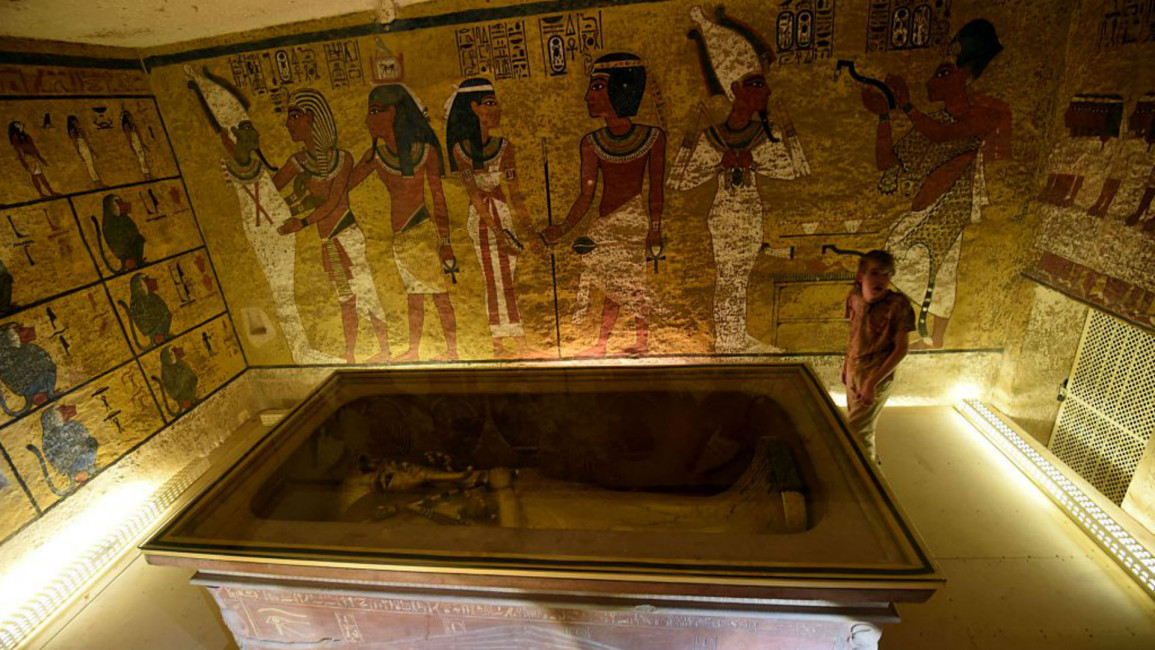
Antiquities for rent: Egypt's ancient sites to host parties
Antiquities for rent: Egypt's ancient sites to host parties
With tourism revenue still low, Egypt is looking to creative and controversial ways to attract visitors.
2 min read
Photography in Tutankhamun's tomb will cost 5,000 Egyptian pounds [AFP]
Egypt has announced plans to rent out some of its most iconic landmarks as part of efforts to revive Egypt's ailing tourism industry.
From November 1, the country's Supreme Council of Antiquities will open up ancient archaeological sites for social functions, including weddings, birthdays and photo shoots.
"Areas such as the Manial Palace of Muhammad Ali, the Baron Empain Palace, the Farouk Palace and the Manasterly Palace, [could be rented] for a fee of 50,000 to 60,000 pounds [$5,600 - $6,800] for every 300 guests," Mahmoud Afifi, the head of archaeology at the ministry of antiquities said, according to Al Monitor.
"Fees of 10,000 pounds [$1,200] would be charged for holding weddings in the Ahmad ibn Tulun Mosque, the Hakim Bi-Amr Allah Mosque, the Muhammad Ali Mosque in the Citadel and the al-Rifa'i Mosque."
Afifi added that photography in historical tombs would cost 2,000 Egyptian pounds [$225], with a premium of $5,000 [$563] to be charged for shoots in the tombs of Tutankhamun, Nefertari and Setti I.
Abd al-Rahim Rihan, general manager of archaeological research and study at the ministry, said that the social functions held at the sites would have to abide by certain restrictions.
This includes the exclusion of speakers and special lighting in order for the celebrations to be "consistent with the dignity and sanctity of the site".
Critics of the new measures have argued that the opening up of ancient sites cheapens Egypt's rich history and threatens their longevity.
However, these moves perhaps speak of the desperation that has characterised Egypt's tourism industry in recent years.
Since its revolution in 2011, Egypt's political instability and security concerns have driven droves of visitors away from the home of some of the world's most famous historical monuments.
In 2010, visitor numbers to Egypt peaked at 14 million, but have since crashed to around 9 million last year, according to data from the United Nations' World Tourism Organisation.
This has contributed greatly to Egypt's crippling dollar shortage, which has threatened the livelihoods of Egypt's population who rely heavily on imports for staple foods.



